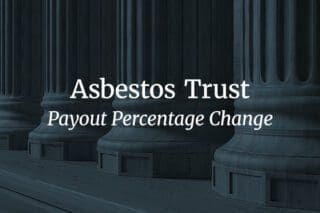Earlier this year, the Honorable Peter H. Moulton issued a new case management order for one of the largest asbestos dockets in the country: New York City Asbestos Litigation (NYCAL). Among other things, the new order allows for punitive damages in asbestos lawsuits, which had previously been disallowed by the NY court.
The prohibition on punitive damages in NY asbestos cases goes back more than twenty years to a decision in 1996. In 2014, the now-retired Judge Sherry Klein Heitler ruled that plaintiffs were allowed to seek punitive damages as part of their attempts to receive compensation for asbestos-related injuries. That decision was stayed, however, until a new case management order could be written to handle procedural issues related to the ruling.
Judge Moulton took over as presiding judge of the NYCAL docket in March 2015 when Judge Heitler retired. After acceding to his new post, Judge Moulton took it upon himself to overhaul and “look under the hood” at how asbestos lawsuits were being handled in NYCAL. The process took more than a year, and it included a meeting this past February with 200 lawyers of both plaintiffs and defendants in an attempt to create an order that would appeal to – or at least appease – all parties involved.
Despite attempts to consider multiple positions on the matters at hand, Judge Moulton’s new order has faced its own share of criticism, in particular from business and trade groups that frequently find themselves as defendants in asbestos trials. The most recent attempt is a 32-page amicus brief filed by organizations friendly to defendants arguing that to allow punitive damages in NYCAL cases would clog the courts by discouraging settlements, encouraging more appeals, and causing trials to run longer.
While defendants claim to be concerned about trial time and preserving company resources to pay those harmed by asbestos, by fighting punitive damages, they seem to seeking primarily to limit the amount that they will have to pay in verdicts that go against them. Unlike compensatory damages, which pay for actual costs related to asbestos disease, punitive damages are intended to punish companies for engaging in harmful practices.
While the arguments and appeals over punitive damages could go on for some time, the good news is that those who file mesothelioma lawsuits in New York are more likely to receive higher verdicts than those who file elsewhere according to a 2015 study published in Mealey’s Asbestos Bankruptcy Report.





